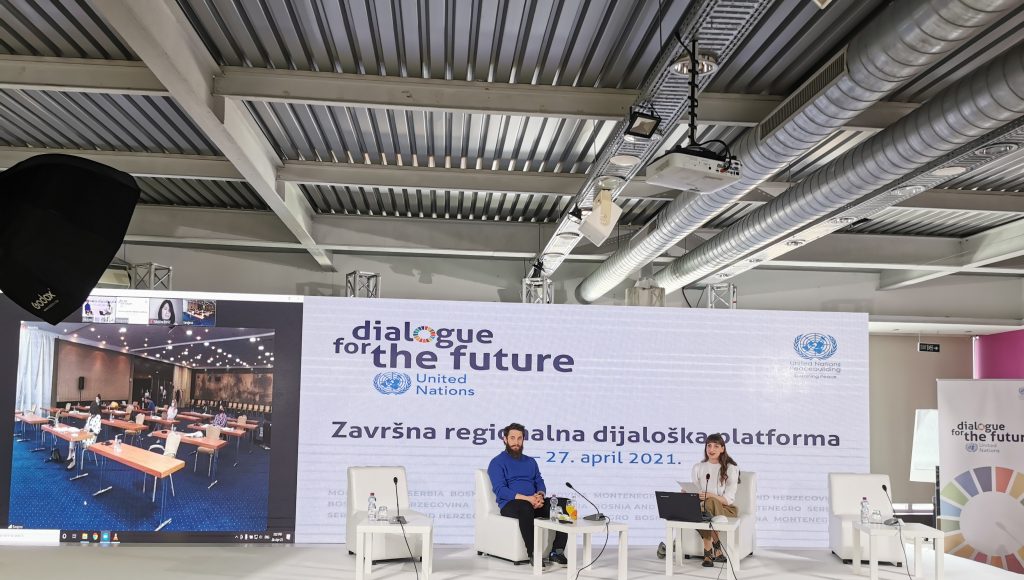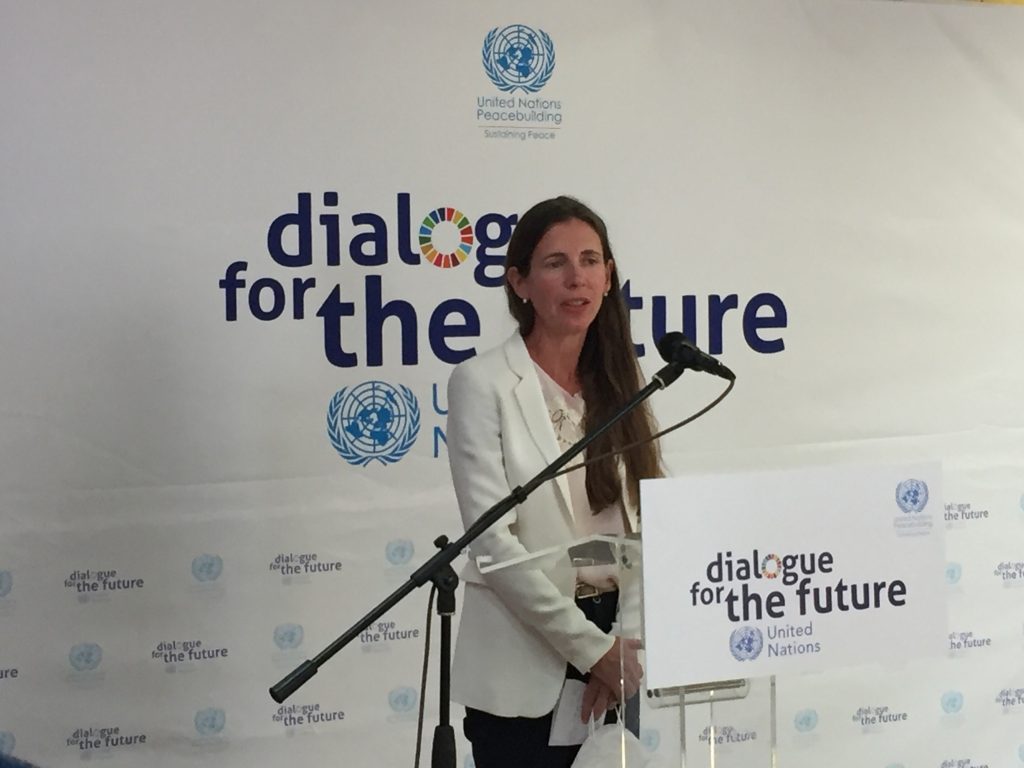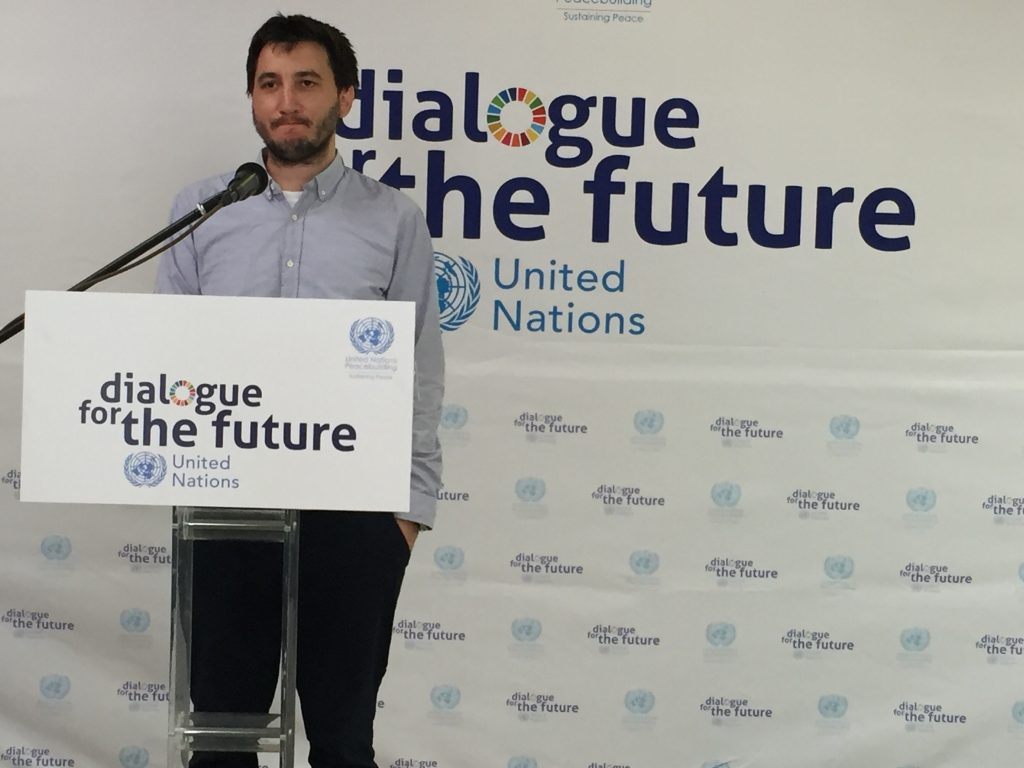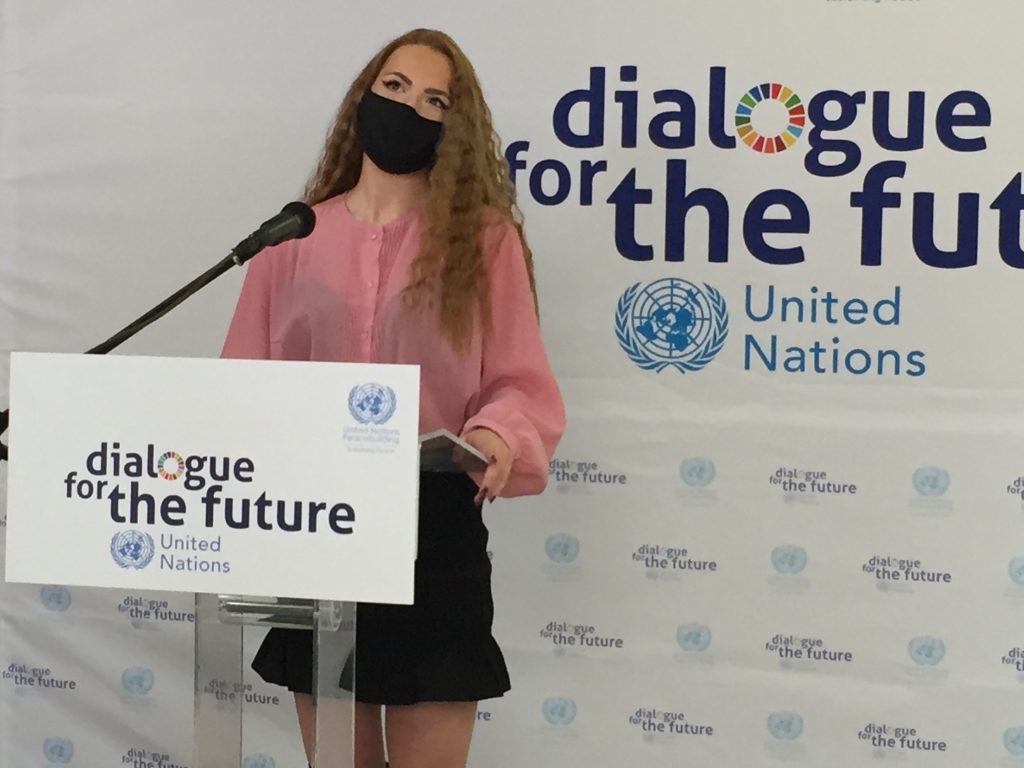Through the implementation of 19 cross-border projects, over 5,000 citizens have been reached
Regional Dialogue Platform, organized simultaneously in Sarajevo, Belgrade and Podgorica, showcased the results of initiatives implemented within the joint regional program “Dialogue for the Future: Improving Dialogue and Social Cohesion in and between Bosnia and Herzegovina, Montenegro and the Republic of Serbia”, which was implemented in Serbia, Bosnia and Herzegovina and Montenegro with the support of the United Nations.

The event, which summarized the results of the two-year regional program and indicated possible directions for further development of the initiative, gathered participants from national institutions of the three countries, representatives of the United Nations, as well as representatives of numerous program participants – citizens, NGOs, youth associations, educational and other institutions, as well as the media.
The regional platform presented a perfect opportunity to exchange experiences and lessons learned through cross-border cooperation, carried out through 19 dialogue platforms, 19 cross-border projects selected through seven Calls for Cross-Border Grants that have facilitated 43 partnerships, 40 local projects of adolescents and youth in 33 municipalities, with a reach of more than 5,000 direct beneficiaries.
“Your region has been characterised by a diverse history, ranging from conflict to peace, but it is in your hands to create the region’s journey going forward. This is both a great responsibility but also an opportunity, and the United Nations stands ready to support you with this mission. As we look to recover better together from COVID-19 by strengthening peace, mutual understanding and trust, youth must not just be a target of action but a central part of the plan and decision-making”, stressed Ms. Jayathma Wickramanayake, the United Nations Secretary-General’s Envoy on Youth.

Francine Pickup, UNDP Resident Representative in Serbia, said in an introductory address: “UNICEF, UNESCO and UNDP, with the support of the UN Peace Building Fund, have organized numerous programs within the Dialogue for the Future initiative to support young men and women in building trust and bringing about policy changes in the region. The networks and cross-border alliances established through these programmes have the power to bring about change and create a future that young people showed they want for themselves and the next generations. UN agencies and UNDP that I represent, will continue to support them, to create an environment where women and men fully enjoy their rights and are ready to speak out against injustice and exclusion. That will also bring us closer to reaching multiple Sustainable Development Goals, that call for gender equality, building sustainable cities and communities, and aim for peace, justice and strong institutions.”
Since the Programme’s launch in January 2019, 1,230 adolescents and young people have been trained in socioemotional skills, advocacy, leadership, teamwork, mobile journalism, public policy processes, media and information literacy, 221 girls and women have been empowered for social activism through educational seminars on leadership, gender equality, social cohesion, 490 teachers and librarians were trained to teach media and information literacy and civic education, 108 journalists and editors on lectures on media and information literacy, objective and fair reporting.

Dražen Zacero, who carried out activities on behalf of the Friends of Children of Serbia in partnership with the UNICEF office in Serbia, said: “The topic of the program that began in 2019 was social cohesion, which was a relatively new concept for young people. Through this process, they learned that it actually means connection, stability, empathy, active participation in society, volunteering and that those are the social relations we want to establish. Within the project in which I participated, young people gave their inputs to teachers of civic education, as well as to decision makers at the local level. This was followed by various local initiatives, cooperation of students, teachers and local activists and support for the continuation of such activities, and it is an example of how a circle of change in a society is carried out from beginning to end. An especially important aspect of this program is that it encourages the meeting of young people from Serbia with young people from Montenegro and Bosnia and Herzegovina, which is very important for their common future.“
The Programme has also delivered a number of innovations that will help end-users in the form of an innovative online platform for mentoring women, the media pact, and the Declaration on Media and Information Literacy and Social Cohesion.
In the Republic of Serbia, over 100,000 citizens participated in program activities through 6 implemented projects: “Children say…”, “Intercultural dialogue – dialogue for the future”, “Culture of dialogue”, “Story of diversity”, “Living library”, “Media Youth Hub: Development of digital and media literacy of young people in Bosnia and Serbia “.

“This program did not change me as a person, but it directed me and gave me information, knowledge and skills that I think every young woman in the society in which we live needs. It was not only the knowledge about the history and importance of feminism, women’s rights and the struggles that women have led through history, but also about the situations we encounter every day – about managing our own time and finances, and about organizing and mentoring as well,” said Emilija Milovanović, a participant in the program.
The joint regional program Dialogue for the Future: Promoting Dialogue and Social Cohesion in and between Bosnia and Herzegovina, Montenegro and the Republic of Serbia is implemented by UNDP, UNICEF and UNESCO and funded by the UN Peacebuilding Fund (UN PBF).